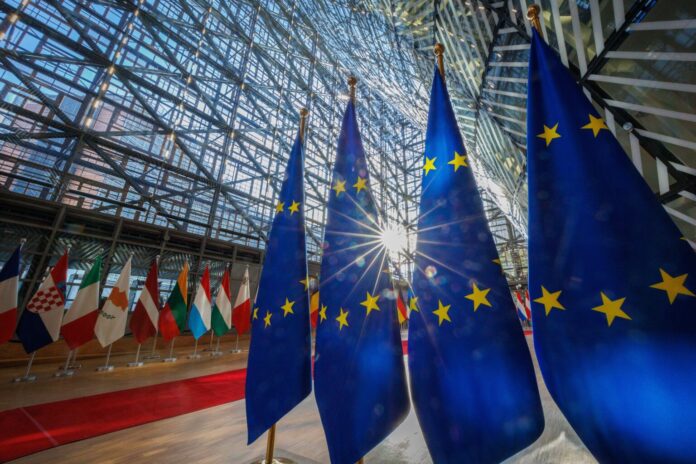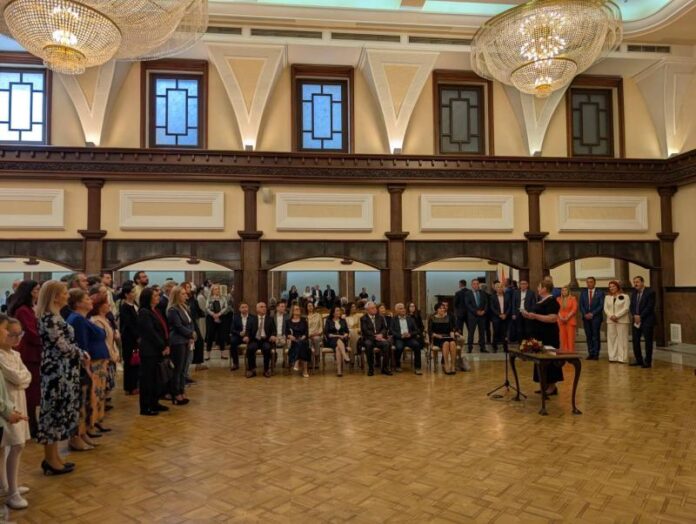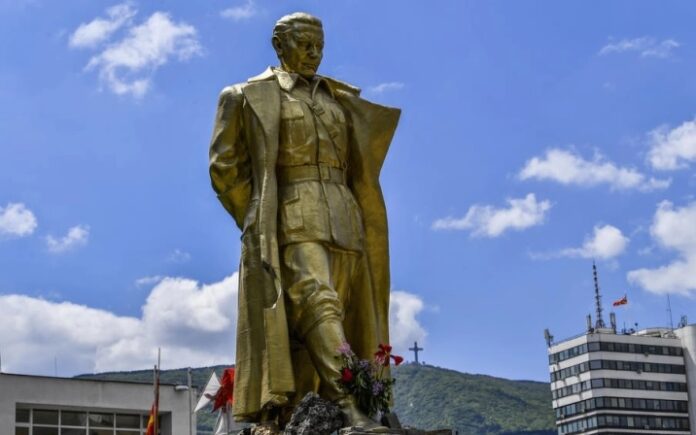CIEPS: Reception of new members will change the relationship of forces in EU

The « revival » of the EU enlargement policy, fueled by Russian aggression against Ukraine, has fueled debates on institutional issues in the bloc, especially related to the balance of power and decision -making processes in European institutions, as well as whether and what institutional reforms are needed to prepare for new members.
This is stated in the analysis of the Swedish Institute for European Political Research (CIEPS) entitled « The Impact of Enlargement on the Council’s Power balance », which estimates that the reception of new EU members will cause changes in the ratio of forces to make decisions within the bloc, increasing the influence of smaller countries.
– Expansion would increase the pressure to abandon the consensus in the Council, but the significant reform of making decisions depends on the large states that offer stimuli to smaller ones, such as adapting the qualified majority, introducing supermenosis requirements or enabling differentiated integration. Without convincing offers to the smaller states, a significant reform of the rules of voting remains unlikely, but enlargement can continue without change, as the audit of the agreement is not a prerequisite for further expansion – the document said.
Currently, the overwhelming majority of the Council’s legislative decisions are adopted by a qualified majority, ie their adoption requires 55 % of the member states, which represent at least 65 percent of the EU’s total population.
Therefore, according to the authors of the analysis, the potential EU accession new countries, especially those with a larger number of residents, such as Ukraine, would have deep implications for the balance of power that in voting, negotiations and reaching agreements within the Council.
The analysis assesses the effects of three possible scenarios for EU enlargement on power balance between member states. The first scenario called the EU30 refers to the accession of Ukraine, Moldova and Georgia, the second – EU33 includes candidates from the Western Balkans – Albania, Bosnia and Herzegovina, Kosovo, Northern Macedonia, Serbia and Montenegro, and the third EU36 would be to reception.
According to the analysis, all three enlargement scenarios increase the importance of smaller EU member states. In a union of 36 members, countries with less than 10 million people would make up nearly two -thirds of their total, compared to the current about 56 percent, but will live below 17 % of the total population in the Union.
In one expanded EU, in all three scenarios, the three most populous countries in the EU – Germany, France and Italy will lose their power in the Council, but together with another state and they would have the so -called. A blocking minority, which requires four members with at least 35 percent of the total population.
On the other hand, these three countries to secure a qualified majority of the EU of 36 members would require the support of 17 other countries, unlike the current 12.
In any scenario of enlargement, the six countries founding the Union – Belgium, Germany, Italy, Luxembourg, France and the Netherlands, could block any EU decision, and on the other hand, such an opportunity will lose the « new » members in the bloc between 2004 and 2013.
Any expansion that would cover Ukraine would significantly increase the influence of eastern EU members in the Council, with post -communist countries that would make up the majority of all countries in the bloc.
Enlargement would also reduce the impact of the Baltic Sea countries, but would strengthen the « Mediterranean bloc », which would have the opportunity to block decisions.
It is assumed that in an expanded union with 36 members, the consensus will become more difficult, which is likely to increase pressure to abandon unanimity for foreign and security policy issues in order to increase its efficiency, the analysis said.
But the increased number of members will also complicate the possibility of achieving a qualified majority, as it will require support from a number of countries.
However, according to the authors, in one union of 36 members, the « Great Troika » will have a greater choice of potential partners to make decisions, ie 33, instead of the current 24.
The analysis suggests that the central issue in the debates on possible reforms of decision -making in the Council remains the problem of how to provide support from small and medium -sized countries in conditions when any change in the EU agreement, including the manner of decision -making, requires consensus from all member states.
– The major countries that advocate the abolition of consensus in the Council vote may have to offer rewards and guarantees to smaller members, including changing the definitions of the qualified majority and the blocking minority, introducing a Supermonicity request for the most sensitive areas of politics … Without convincing countries, it can remain a significant state -of -the -art. Continue without deeper integration – especially given that, from a legal point of view, the audit of the agreement is not a prerequisite for further expansion – concludes in the analysis of the Swedish Institute for European Political Research.








